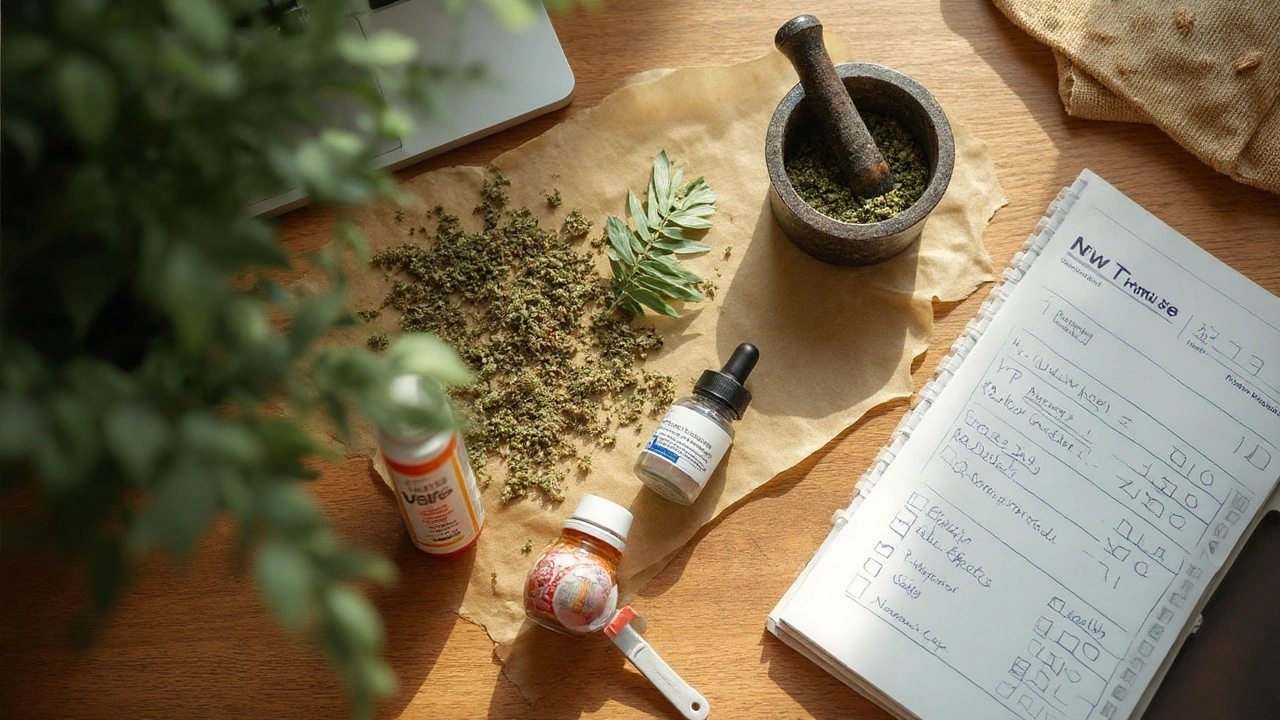Jaborandi – What It Is and Why People Use It
You've probably heard the name Jaborandi tossed around in supplement blogs or pharmacy forums. It's a plant that yields an alkaloid called pilocarpine, which can stimulate sweat, saliva, and even the eyes. People take it for dry mouth, eye problems, and sometimes to boost digestion. The idea is simple: a natural compound that nudges your body to produce more of its own fluids.
What Is Jaborandi?
Jaborandi comes from a small shrub native to Brazil. The leaves are dried and turned into powders, capsules, or teas. Pilocarpine is the active ingredient, and it's the same molecule you find in prescription eye drops for glaucoma. That tells you the plant can be powerful – it’s not just a harmless herb.
Historically, indigenous people chewed the leaves to relieve thirst and treat mouth dryness. Modern research shows it can indeed increase saliva flow, which is why dentists sometimes recommend it for patients on dry‑mouth medications. But the same effect can cause sweating or watery eyes if you take too much.
Safety, Dosage, and Interactions
How much Jaborandi is safe? Most experts suggest starting with a low dose – about 50 mg of standardized extract per day – and only increase if you tolerate it well. The dose can vary depending on the product, so always read the label and follow the guidance of a qualified pharmacist.
If you have glaucoma, heart disease, or asthma, think twice before using Jaborandi. Pilocarpine can lower eye pressure, which is good for some glaucoma patients, but it can also trigger a rapid heart rate or worsen asthma symptoms. Always check with your doctor if you have these conditions.
Drug interactions are a big deal. Jaborandi can boost the effects of certain blood pressure meds, making you feel light‑headed. It also interacts with anticholinergic drugs – those that dry up secretions – essentially canceling each other's actions. If you take antihistamines, antidepressants, or medications for urinary issues, talk to a pharmacist before adding Jaborandi.
Side effects are usually mild at low doses: a bit of sweating, a runny nose, or heightened tear production. Higher doses can lead to nausea, dizziness, or a rapid heartbeat. If you notice any of these, stop the supplement and seek medical advice.
Pregnant or breastfeeding women should steer clear of Jaborandi. There isn’t enough safety data, and the plant's strong effects could affect the baby. The same goes for kids – the dosage isn’t established for children.
When you buy Jaborandi, look for reputable brands that test for purity. Some cheap products might contain fillers or even harmful contaminants. A good quality supplement will list the amount of pilocarpine per serving and provide a batch number for traceability.
In everyday use, Jaborandi works best when you pair it with lifestyle tweaks. Stay hydrated, chew sugar‑free gum for dry mouth, and keep your eyes lubricated with drops if you’re prone to dryness. The supplement can give a gentle boost, but it isn’t a cure‑all.
Bottom line: Jaborandi can be helpful for specific issues like dry mouth or eye pressure, but it’s not risk‑free. Start low, watch for side effects, and always check with a health professional, especially if you’re on prescription meds. With the right approach, you can decide if this herb has a place in your health routine.

Jaborandi Supplement: Benefits, Risks, Dosage, and Evidence (2025 Guide)
Curious about Jaborandi? Get clear, evidence-based answers on benefits, side effects, dosing, quality, NZ rules, and safe alternatives-without the hype.
Read More